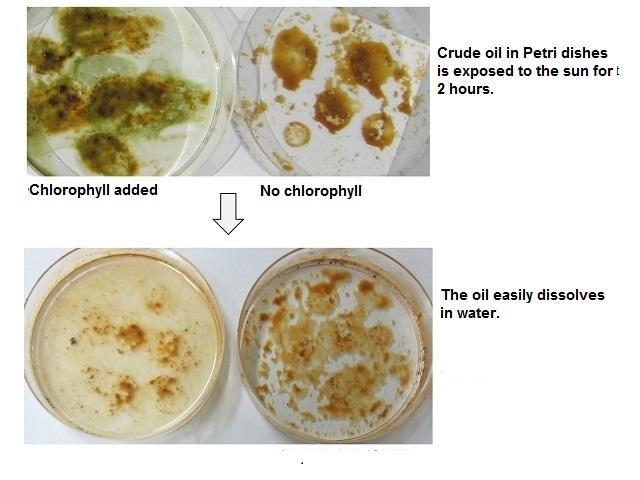On August 28th, 2018, the Nikkei Business Daily (Nikkei Sangyo Shimbun) reported the story of a research breakthrough conducted by Assistant Professor Masaki Ihara of the Institute for Biomedical Sciences.
Dr. Ihara and his team developed a method to efficiently decompose heavy oils with the chlorophyll that plants normally use for photosynthesis. Chlorophyll produces active oxygen when exposed to the sun. The research group discovered that active
oxygen promoted changes in oil-based molecular structures to become more easily decomposed by the microbes inhabiting the sea and soil. This method has a faster decomposition time than other techniques, with the naturally decomposing chlorophyll causing less burden on ecosystems. The potential applications of Dr. Ihara’s discovery are widespread and include the decomposition of heavy oil spills in the sea, soil purification at construction sites, and oil tank cleaning. Since chlorophyll
exists in all green plants, the effective utilization of biomass is also expected by extracting chlorophyll from the algae and weeds that grow in lakes.
Further research and development of this method is now underway in coordination with several manufacturers to decrease mass production costs and develop other practical applications.
Dr. Ihara’s research is supported by the project of the Global Aqua Innovation Center for Improving Living Standards and
Water-sustainability from the Center of Innovation Program of the Japan Science and Technology Agency (JST).
Dr. Ihara and his team developed a method to efficiently decompose heavy oils with the chlorophyll that plants normally use for photosynthesis. Chlorophyll produces active oxygen when exposed to the sun. The research group discovered that active
oxygen promoted changes in oil-based molecular structures to become more easily decomposed by the microbes inhabiting the sea and soil. This method has a faster decomposition time than other techniques, with the naturally decomposing chlorophyll causing less burden on ecosystems. The potential applications of Dr. Ihara’s discovery are widespread and include the decomposition of heavy oil spills in the sea, soil purification at construction sites, and oil tank cleaning. Since chlorophyll
exists in all green plants, the effective utilization of biomass is also expected by extracting chlorophyll from the algae and weeds that grow in lakes.
Further research and development of this method is now underway in coordination with several manufacturers to decrease mass production costs and develop other practical applications.
Dr. Ihara’s research is supported by the project of the Global Aqua Innovation Center for Improving Living Standards and
Water-sustainability from the Center of Innovation Program of the Japan Science and Technology Agency (JST).


